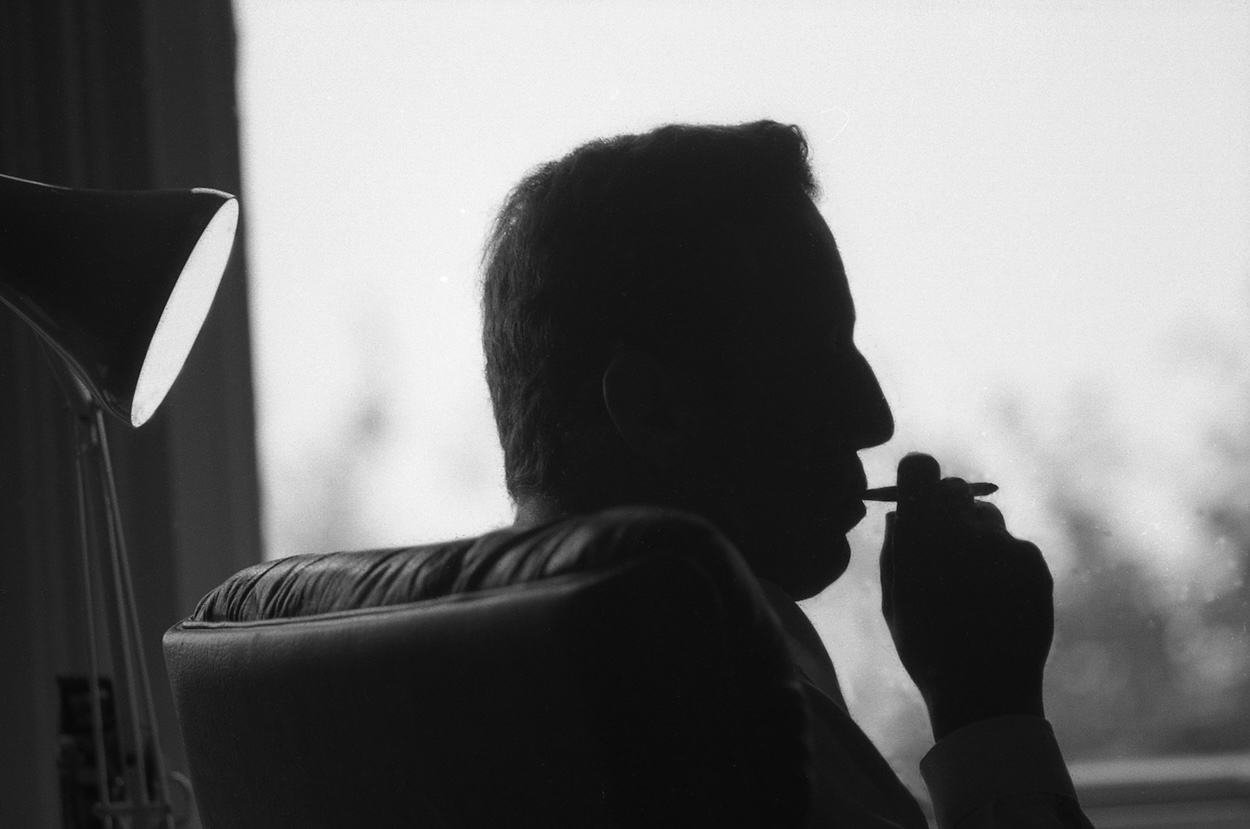If Frederick Forsyth had not existed, you would have had to invent him. Yet no novelist could have come up with as convivial, swashbuckling and lively a character as the thriller writer, who has died at the age of 86. Many of his millions of admirers thought him almost immortal, and over the course of a half-century career – which began in earnest with the publication of The Day of the Jackal in 1971 and seldom slackened thereafter – Forsyth produced a series of bestsellers that sold tens of millions of copies in dozens of languages.
After briefly serving as an RAF pilot, he went to work at Reuters and then as a BBC correspondent, where one of his assignments was to cover the attempted assassination of Charles de Gaulle in August 1962. Although it was a relatively minor story, it piqued Forsyth’s imagination. Coupled with his discovery that criminals could readily obtain false identities using the birth certificates of infants who had died, Forsyth began to create one of the greatest suspense thrillers ever written – focusing on the cat-and-mouse game between the ruthless, anonymous British assassin, known only as ‘the Jackal’, who is hired to kill de Gaulle, and his nemesis, France’s top detective, Claude Lebel.
The reason for the book’s success is that it moves breathlessly and with conviction, Forsyth inserting just enough historical and political detail to allow the reader to overlook the occasional coincidence or implausibility. By his own account, he wrote it to make money, after his debut book, 1969’s The Biafra Story; he later admitted that it took him a mere 35 days to write the 140,000-word manuscript. Many publishers were initially queasy, believing it too close to home in its depiction of an attempted assassination of de Gaulle. But after Forsyth convinced the independent house Hutchinson to take a chance on him, it began to sell in vast quantities. Once it was bought by an American publisher for a staggering $365,000, Forsyth said he had ‘never seen money like it and never thought I would’.
It was a successful formula, one he ruthlessly reprised for the bestselling follow-up, The Odessa File, and then for subsequent novels including The Dogs of War, The Fourth Protocol and The Shepherd. Many were filmed – in the case of The Day of the Jackal, extremely well, thanks to the inspired casting of Edward Fox as the eponymous assassin – and they made Forsyth an extremely wealthy man. He continued to write prolifically throughout his career, and if his novels never quite recaptured the same attention as his breakthrough, the recent Eddie Redmayne-starring miniseries reminded audiences of the endlessly watchable intricacy of his plotting, even if it took considerable liberties with the original storyline.
Forsyth was a proud political conservative and stalwart Brexiteer
Forsyth was a proud political conservative and stalwart Brexiteer whose heartfelt but never purely reactionary views often appeared in newspapers and magazines, including The Spectator. He enjoyed many of the perks of wealth and fame – including a relationship with the actress Faye Dunaway – and admitted in 2015 that he had been an MI6 asset for decades, though it is unclear whether he ever did more than hand over a few documents to interested parties in various Cold War cities. In any case, his global fame would have made him an unlikely spy. By his own admission, he was ‘slightly mercenary’ and wrote with an eye on sales rather than critical acclaim. Yet the sheer pleasure he gave to readers is unlikely to be equalled by many other 20th-century writers.
It is a testament to a man who entitled his 2015 memoir The Outsider that, although he enjoyed the trappings of well-heeled English society – a public school education, club memberships, a substantial country house and a CBE – he always saw himself as much an observer as a participant in national life. It was this that gave his novels such interest and vitality. Although he once confessed, ‘I never wanted to be a writer’, his readers will be glad that he overcame that particular reluctance.
Read Frederick Forsyth’s final article for The Spectator magazine here.








Comments